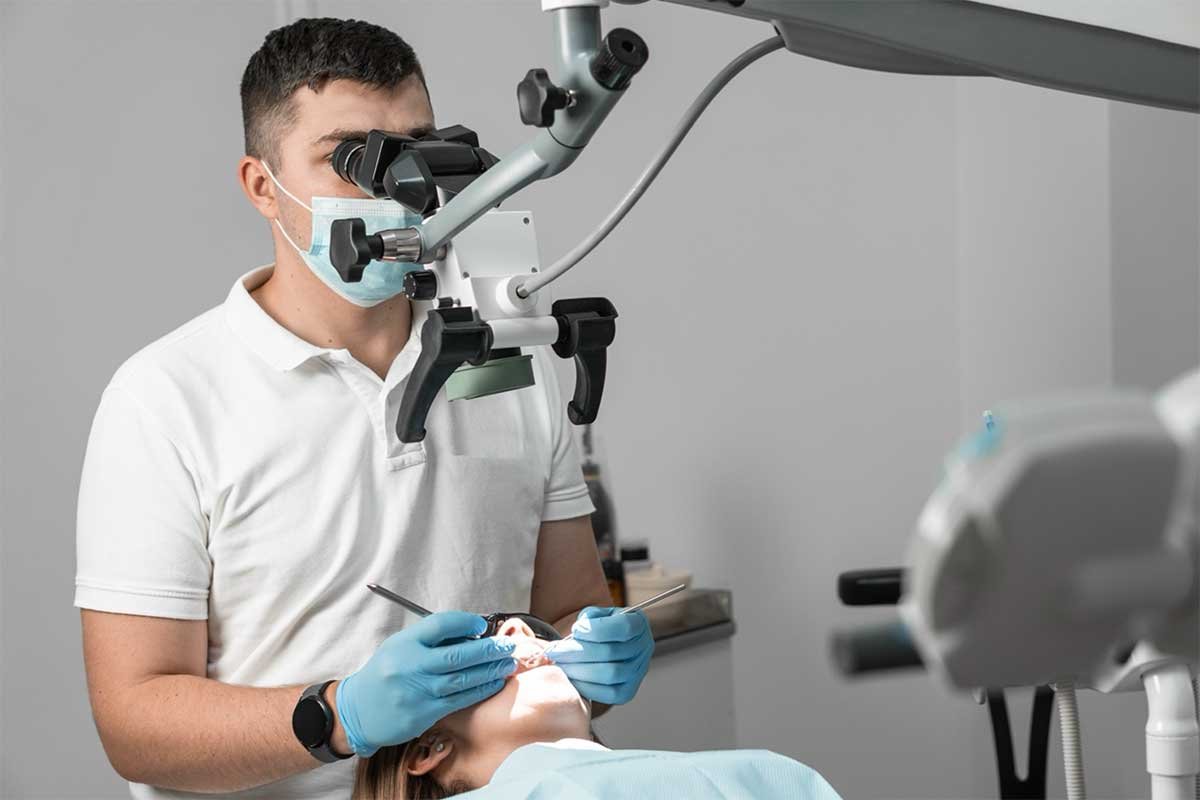If you are thinking of getting dental crowns or any other dental work, you must understand both the what and why of whatever is happening with your teeth.
Today, we are going to talk about the most common questions about dental crowns so that you can clear any ambiguity that you might have, and make an informed decision:
What are Dental Crowns?
Dental crowns, as the name suggests, are tooth-shaped and made to match the rest of your teeth. It is a dental restoration method that is used to entirely cover or cap a damaged tooth.
How Do Dental Crowns Work?
Generally, dentists recommend getting dental crowns to restore broken, chipped, or crack teeth. Furthermore, they are also suitable for teeth that have decayed, had a root canal, or dental implant.
These are custom-made by taking an impression of your tooth according to the tooth size and color. The dentist will also reduce the size of your real tooth so the crown can fit properly.
Do You Actually Need It?
A dental crown can treat a variety of problems. Some of the most common ones are:
Some of these problems require immediate treatment. But a couple of them can use dental crowns as a way to prevent the occurrence of further problems.
Can We Repair Dental Crowns?
Depending on the extent and severity of the damage, a damaged dental crown can be repaired. It is better to replace the crown in such an instance. If the chip is not big, a dentist can repair it using a composite filling material to match the crown. It just requires a little smoothening and reshaping the surface of the crown in case of a small chip or rough area.
Are They Safe?
Yes, dental crowns are safe usually. If the patient has an allergy to the material used, that can be an issue. If you are allergic to any metal or have sensitivity, inform the dentist.
Can a Dental Crown Fall Off?
A dental crown can fall off. However, you should retain the lost crown. There are temporary adhesives that you can use in an emergency to fit the crown temporarily. For a permanent fix, head to your dentist.
Are Dental Crowns and Dental Implants the Same?
No. A crown is a tooth-shaped cap that is placed over an existing tooth. It is used to repair a broken tooth. As for dental implants, they are surgically put into your gum and replaces the missing tooth root. It looks and functions like a normal tooth.
Since an implant is put directly onto the bone, it fuses with it. It is a long-lasting method, if you are taking care of it properly. An implant also serves as a platform for the new replacement tooth. A dental crown completes it.
In simple words, dental crowns and implants are separate processes but closely related. They are both an equal half of a successful treatment that helps with replacing teeth. A crown cannot replace a missing tooth without the implant but alter the damaged one.
What Is the Alternative to Dental Crowns?
In some cases, the tooth faces severe damage. So much that even a dental inlay or filling can’t save it. In this case, you can opt for tooth extraction if you don’t want the crown. Oral health experts usually do not recommend this procedure as it will leave a space in your mouth that can alter your bite and even make the surrounding teeth drift. So, to keep as many teeth as you can, getting a dental crown might be the only option if you have lost your natural tooth structure.
Are Dental Crowns Painful?
No, since the dentist uses local anesthesia, you will not feel any pain during the procedure. However, the patient will experience some sensitivity after the procedure.
What Are Dental Crowns Made Of?
There are four main types of dental crowns:
Are Dental Crowns and Caps the Same Thing?
Yes, they are the same. A dental crown is the term used in dentistry whereas a cap is an informal name of the crown.
Can Dental Crowns Decay?
No, dental crowns do not decay. However, the tooth under it can. Crowns protect the tooth from decay except for the gum line. The natural tooth is exposed to bacteria and cavity-causing foods. Brushing and flossing are crucial for prevention as well as regular dental check-ups. Decay under the crown is the main reason behind dental crown failure.
If it happens, the dentist removes the crown. Then, they remove the decay before replacing it with a filling and placing a new crown. For more information, feel free to consult one of our experienced dentists at SameDay Dental Clinic.
Dr. Petros Yuvanoglu
Cert. Prosthodontics (Tufts, USA)
Adjunct Faculty, Tufts University School of Dental Medicine





